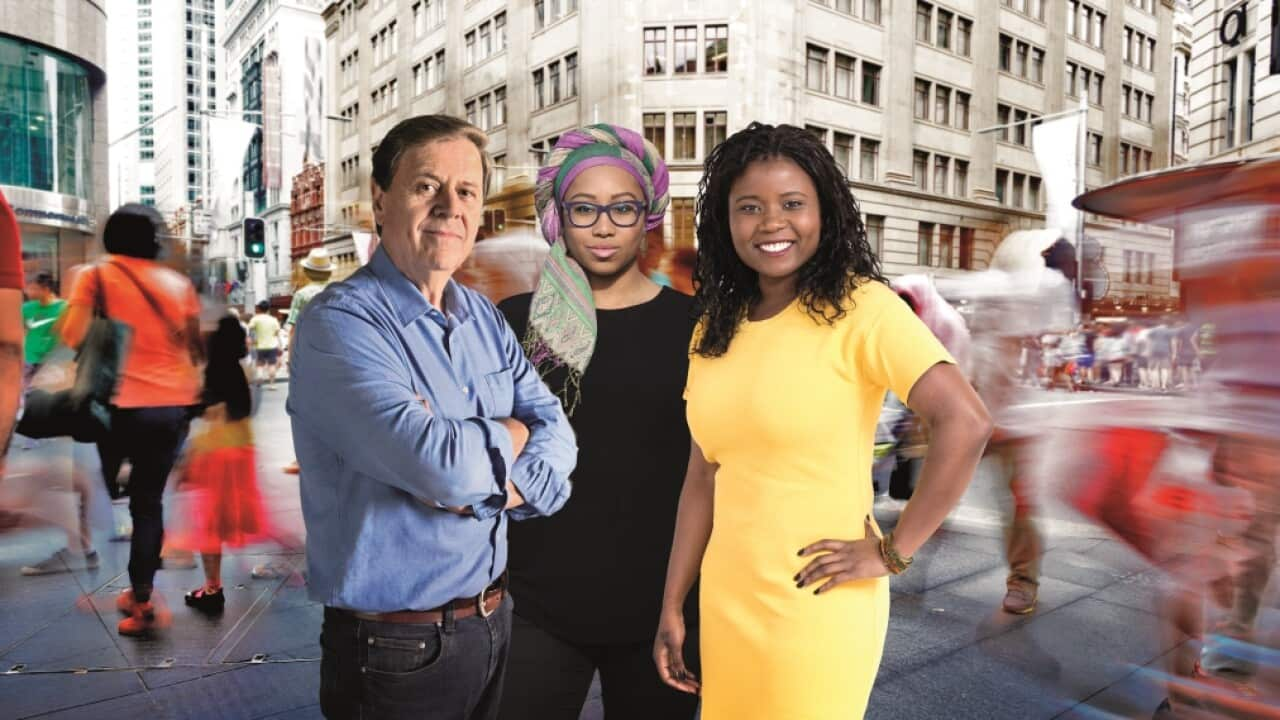As I started to write this article about the upcoming SBS program Is Australia Racist?, I noticed that one of the top stories on internet news feeds was about a woman “banging furiously on the windows of a car” in Melbourne and yelling at the passenger inside: a woman wearing a niqab.
“Who are you?” screamed the woman outside the car. “Why you got a mask? Terrorist. You got a gun?”
Stories like this make the question "Is Australian racist?" a simple question to answer. But is that fair? A topic like this demands deeper consideration.
As part of a campaign titled Face Up to Racism, SBS in February is screening three provocative specials with the aim of confronting and analysing racial bias and bigotry in our society: Date My Race, Is Australia Racist?, and The Truth About Racism.
Hosted by veteran journalist Ray Martin, Is Australia Racist? examines whether this country’s inclusiveness when it comes to a diverse range of races, religions and cultures have deepened our national tolerance or lit the fuse on a powder keg. After all, Australia may well be what Martin calls a “fabulous melting pot” with a population comprising 300-odd different kinds of ancestry.
After all, Australia may well be what Martin calls a “fabulous melting pot” with a population comprising 300-odd different kinds of ancestry.

Source: SBS
But it’s also a country where a man will, in public and in plain view of bystanders, stride up to a woman wearing a niqab and bellow “Where’s your fucking face? What are you hiding from, fucking Allah?”
Seeing such footage, and a variety of other viral videos showing dolts spewing racial invective at people they view as trespassers or interlopers in “my country”, it’s all too easy to agree with Martin when calls racism in Australia “this festering sore, this problem we need to fix”.
To its credit, Is Australia Racist? goes beyond emotional appeals by presenting data drawn from a comprehensive nationwide survey concerning racism and discrimination, as well as hidden-camera footage from a number of ‘social experiments’.
The old hidden camera trick may feel like a throwback to Martin’s A Current Affair days but there’s no denying the effectiveness of it.
Having undercover actors sling racist taunts at a young woman of Mauritian background quickly reveals that most bystanders will remain quiet, a handful will speak up in the young woman’s defence – some softly, others with a little more fire (“If you’re Australian, I’m disgusted by what I just heard you say”).
In another experiment, Ugandan refugee Jafri Katagar – Melburnians will recognise him as the man regularly standing at the busy intersection of Flinders and Swanston streets holding up a sign reading ‘Stop Racism Now’ – is placed in the path of a crowd of people making their way to an AFL match.
“We’re about to send him into hostile territory,” warns Martin.
It’s heartening, then, the number of high-fives and hugs Katagar receives from people en route to the footy. But it’s disturbing hearing what he is subjected to while holding his intersection vigil, everything from that old chestnut “If you don’t fuckin’ like it here, leave” to epithets even more vile. Witnessing such behaviour, it can be hard to swallow the statistic that four out of five survey respondents are in favour of cultural diversity.
Witnessing such behaviour, it can be hard to swallow the statistic that four out of five survey respondents are in favour of cultural diversity.

Jafri Katagar walks against the tide Source: SBS
But racism is a sly one, shifting and changing over time. As one pundit on Is Australia Racist? points out, the term used to mean attitudes and behaviour pertaining to racial makeup. These days, it has come to entail things like religion and culture, with incompatibility replacing superiority as the driving force behind bigotry or discrimination.
Indeed, incompatibility is one of the buzzwords at a Reclaim Australia rally, where Muslims are the primary target of negativity.
According to figures presented by the program, negative feelings towards Muslims have increased tenfold since 1998, the terror attacks of September 11 viewed as responsible for a spike in these attitudes.
However, the media’s presentation of race issues plays a significant role in shaping public perceptions, as Is Australia Racist? discusses “the framing effect” that bends facts in the direction that will attract the most views to a particular story. It’s bracing to see Martin telling the audience not to accept the media’s version of events at face value.
Is Australia Racist? doesn’t claim to have all the answers, but just providing information that is at times uncomfortable to face is at least a move in the right direction.
As the program itself points out: “Social cohesion is not a destination – it’s something you continue to work at.”
Ia Australia Racist airs Sunday 26 February at 8.30pm on SBS.
Face up to racism with a week of programs challenging preconceptions around race and prejudice.
Face Up to Racism Week starts 26 February on SBS. | #FU2Racism





